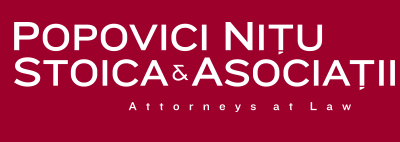- About Us
-
Expertise
- Banking & Finance
- Capital Markets
- Competition & Antitrust
- Corporate & Commercial
- Data Privacy
- Employment & Pensions
- Energy & Natural Resources
- Gambling & Betting
- Healthcare & Pharmaceuticals
- Insurance
- Intellectual Property
- International Arbitration
- Litigation
- Mergers & Acquisitions
- Project Finance/PPP, Concessions & Infrastructure
- Public Procurement
- Real Estate
- Restructuring & Insolvency
- Sports Law
- Tax
- Telecommunications, Media & Technology
- Transports & Logistics
- White Collar Compliance & Defense
- Our team
- Careers
- Publications
- News and Press
- Contact
Legal Update
AML Insights – Important AML changes to come
WHITE COLLAR COMPLIANCE & DEFENSE

Alexandru Ambrozie - Partner, PNSA
The On April 15, the Ministry of Public Finances published in consultation a draft law which would amend the Romanian AML Law no. 129/2019 (“AML Draft Law”). The aim of the AML Draft Law is to fully transpose the 5th AML Directive.
In a nutshell
Context – Considering that (i) all the EU member states had to implement the 5th AML Directive by January 10, 2020 and (ii) on February 12, 2020, the EU Commission sent a letter of formal notice[1] to Romania for not transposing the 5th AML Directive, the Romanian Ministry of Public Finances (“MFP”) published in consultation the AML Draft Law.
Main amendments – One of the central changes affects the providers engaged in (i) exchange services between virtual currency and fiat currency and (ii) custodian wallet services, as the AML Draft Law provides a specific procedure for their authorization and operation in Romania.
Significance – The new changes are even more important as most of the companies already in scope of the AML Law have recently struggled to implement the AML requirements adopted in the summer of 2019 due to certain lack of understanding around the new requirements, the time pressure and the higher costs entailed by such complex compliance exercise.
Main topics covered by the new AML Draft Law
I. Extension of the definition of “obliged entities”
- auditors, external accountants, tax advisors, authorized valuers that provide financial, business or accounting advice, and any other persons that undertake to provide, directly or by means of other persons to which that other person is related, material aid, assistance or advice on tax or financial matters as principal business or professional activity;
- real estate agents and real estate developers, including when acting as intermediaries in the letting of immovable property, but only in relation to transactions for which the monthly rent amounts to minimum EUR 10.000;
- other persons trading in goods to the extent that payments are made or received in cash in an amount of minimum EUR 10.000, whether the transaction is carried out in a single operation or in several operations which appear to be linked;
PNSA Note: Currently, the above-mentioned provision covers also the persons that provide services for which correspondent payments are made or received in cash in an amount of minimum the equivalent in RON of EUR 10.000.
- providers engaged in exchange services between virtual currencies and fiat currencies;
- custodian wallet providers;
- persons trading or acting as intermediaries in the trade of works of art, including when this activity is carried out by art galleries and auction houses, where the value of the transaction or a series of linked transactions amounts to minimum EUR 10.000;
- persons storing, trading or acting as intermediaries in the trade of works of art when this is carried out by free ports, where the value of the transaction or a series of linked transactions amounts to minimum EUR 10.000.
II. New or amended definitions
The “virtual currencies” are defined (in line with the 5th AML Directive) as a digital representation of value that is not issued or guaranteed by a central bank or a public authority, is not necessarily attached to a legally established currency and does not possess a legal status of currency or money, but is accepted by natural or legal persons as a means of exchange and which can be transferred, stored and traded electronically.

Diana Dobra - Associate, PNSA
The “custodian wallet provider” is defined (in line with the 5th AML Directive) as an entity that provides services to safeguard private cryptographic keys on behalf of its customers, to hold, store and transfer virtual currencies.
The definition of “financial institutions” will also cover (i) specialized entities that carry out foreign exchange activities for individuals, organized in the form of foreign exchange offices and (ii) entities with tourist reception structures that offer tourist accommodation functions and carry out currency buying operations from natural persons.
III. Virtual currency exchange and Virtual currency wallet services - new registration requirements
The authorization and/or registration of the providers engaged in exchange services between virtual currencies and fiat currencies (“Virtual currency exchange”) and of the providers of custodian wallet services (“Virtual currency wallet services”) will be granted by the Commission for the authorization of the foreign exchange activity established within the Ministry of Public Finance (“Commission").
The authorization and/or registration procedure will be established by Government Decision to be issued within 120 days from the date of entry into force of the AML Draft Law.
The Virtual currency exchange and Virtual currency wallet service providers would also have to obtain an annual technical permit from the Ministry of Transport, Infrastructure and Communications (in Romanian, “aviz tehnic”), in exchange of an annual fee.
Even though the AML Draft Law lacks to establish the exact sanction for not complying with these obligations, one may argue that the related sanction is the general one applicable to legal entities, which may lead to a fine of up to 10% of the total income from the previous financial year. However, the matter shall most likely be clarified in the final version of the law.
1. Entities that will be able provide Virtual currency exchange and Virtual currency wallet services in Romania. Conditions for authorization/registration
- Legal entities incorporated under Romanian law and authorized in accordance with Government Decision mentioned above; or
- Legal entities authorized/registered by the competent authorities in a Member State of the European Union or of European Economic Area (EEA) or Switzerland.
A provider of exchange services between virtual currencies and fiat currencies or a provider of digital wallet services, authorized/registered in a Member State of the European Union or in the EEA or Switzerland (“Foreign entities”), may carry out the services in Romania only based on the notification sent to the Commission by the competent authority of the state of origin and the response received to this notification from the Commission.
The Foreign Entities are obliged to notify the Commission with the identification data of the person authorized to represent the Foreign Entity in front of national authorities/courts and to conclude contracts on their behalf. Such person shall be located in Romania.
The conditions to be met by the authorized representative, the notification procedure and the necessary documents for the notification will be established in the Government Decision that will be issued within 120 days from the date of entry into force of the AML Draft Law.
2. Restrictions to provide Virtual currency exchange and Virtual currency wallet services
The Commission may block the access to the websites maintained by the providers of Virtual currency exchange and Virtual currency wallet services which are not authorized to provide services in Romania.
The providers of electronic communications networks and services - internet, fixed or mobile telephone service providers, radio/TV and cable service providers – shall be obliged to comply with the Commission's decisions regarding the restriction of access to such websites.
3. Consequences entailed by Virtual currency exchange and Virtual currency wallet service providers being considered reporting entities, subject to AML requirements
In brief, being subject to the Romanian AML legislation implies the following actions, at least for the legal entities incorporated in Romania: (i) prepare internal policies, control mechanisms and risk management procedures – i.e. policies regarding customer due diligence measures, apply risk-based assessment mechanisms, establish client acceptance strategy, adopt specific measures to mitigate the money laundering and financial terrorism risks, consider how compliance with group policies and procedures is ensured (if the case); (ii) prepare an annual AML risk assessment methodology and an AML risk assessment; (iii) appoint an AML designated person with responsibilities in the enforcement of AML provisions; (iv) report suspicious transactions to the AML Office; (v) engage an independent audit function to periodically test the effectiveness of the AML internal procedures, policies, control mechanisms and risk management procedures (depending on the annually financial results) etc.
4. Key Points on Virtual currency exchange and Virtual currency wallet service
- In order to provide Virtual currency exchange and Virtual currency wallet services or to advertise such services in Romania, entities shall have to be authorized with a specialized Commission organized within the Ministry of Public Finances.
- The conditions for the authorization procedure will be established by Government Decision, within 120 days from the date of entry into force of the amendments to the AML Law.
- In order to provide such services, entities shall pay an annual fee (at this moment, there is no indication on the level of this fee).
- The supervisory authority for the compliance with the AML requirements will most probably be the AML Office.
- the providers above shall have to register with the Commission within 12 months from the entry into force of the AML Draft Law.
IV. List of politically exposed persons (“PEPs”)
The National Agency for Integrity (“ANI”) is empowered to draft and keep up to date the list indicating the exact functions which, according to the AML Law and other relevant regulations, qualify as prominent public functions. The updated list will be published on ANI’s website.
PNSA Note: Considering that the existing definition of PEPs is an exact transposition of the broad definition established under the 4th AML Directive, without being tailored to the particular organizational framework of Romania or to the powers and responsibilities associated with the public functions covered by the AML Law, while also not being in line with the law regulating the political parties, we expect that ANI will clarify the exact prominent functions that qualify as public exposed persons.
V. Beneficial owners register (“BO Register”)
The access to the BO Registers will be ensured as long as the interested persons will register online and pay a fee to the competent authorities that organize the BO Registers (i.e. the National Trade Registry, the MFP or the Ministry of Justice).
The reporting entities should inform the AML Office about any discrepancy between the information available in the BO Register and the information available to them.
PNSA Note: Hence, the reporting entities have an additional duty - to verify the accuracy of the information held (and presumably already checked) by the national authorities. We think it is recommendable for the national authorities to work together with the reporting entities and not to transfer all the effort and responsibility to the private sector.
Furthermore, when applying the customer due diligence related to the beneficial owners, the reporting entities shall not rely exclusively on the BO Registers. These requirements will be considered fulfilled by using a risk-based approach.
VI. Customer due diligence
Reporting entities may use electronic verification in their due diligence process by means of identification as set out in the EU Regulation no. 910/2014 or by other secure remote or electronic identification processes, regulated, recognized, approved or accepted by the Romanian Ministry of Transport, Infrastructure and Communications.
Reporting entities must obtain proof of registration of the beneficial owners or information from the central registers of beneficial owners whenever they start a new business relationship.
Reporting entities should apply the customer due diligence measures not only to new clients, but also to existing clients on a risk-sensitive basis or when the relevant circumstances regarding the client change or when the reporting entity has a legal duty in the course of the relevant calendar year to contact the customer for the purpose of reviewing any relevant information relating to the beneficial owner.
VII. Enhanced customer due diligence
Reporting entities shall examine the background and purpose of all transactions that fulfil at least one of the following conditions: (i) they are complex transactions; (ii) they are unusually large transactions; (iii) they are conducted in an unusual pattern; (iv) they do not have an apparent economic or lawful purpose.
New factors potentially evidencing higher risks are established under the existing regulations.
Further, enhanced due diligence requirements should be applied to business relationships or transactions involving high-risk countries. The proposed enhanced measures and mitigating actions are in line with the requirements set under the 5th AML Directive.
PNSA Note: We salute this amendment as the obligation above is vague, general and without any legal reasoning, thus with great potential of being breached, either by not reporting or by excessive reporting with no factual or legal relevance.
Credit institutions, payment and e-money institutions have to submit to the National Agency for Fiscal Administration (“ANAF”), for each holder who is the subject of the request, all the turnovers and/or balances of the accounts opened with them, as well as the information and documents regarding the operations carried out through the respective accounts (information regarding the IBAN number included).
Based on this information, ANAF will organize the Central Registry for payment accounts and bank accounts identified by IBAN, as defined under the EU Regulation no. 260/2012, and safe-deposit boxes held by a credit institution within Romania.
________________________
This document is intended for informational purposes only, does not represent legal advice and does not focus on particular cases.
For further information or analysis on specific matters, please contact Alexandru Ambrozie or Diana Dobra.










